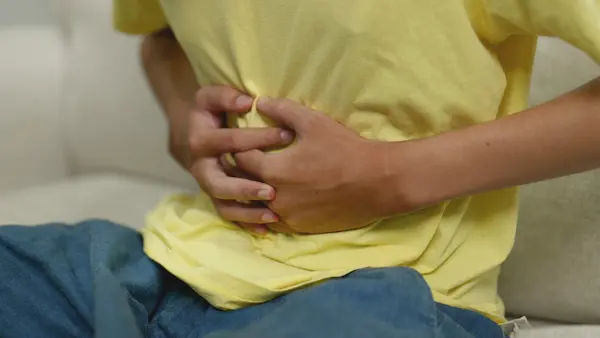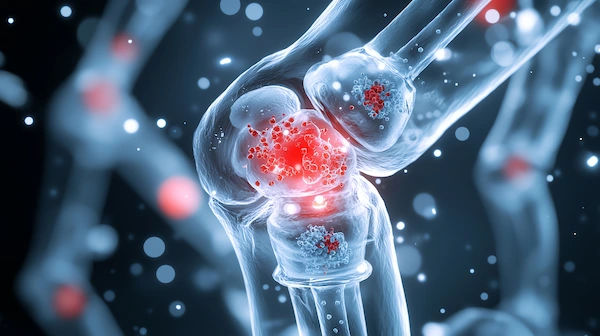Guide to Why You Feel Sick After Summer Rain
Feel a little under the weather after a summer rain? Discover the surprising reasons behind this common phenomenon, from changes in air pressure to the release of allergens. Learn how to feel better and enjoy the post-rain freshness!


Introduction
That first summer rain is often a welcome relief from the scorching heat. The air feels fresh, the world seems cleaner, and the earthy scent of petrichor fills the atmosphere. But for many, this pleasant experience is quickly followed by an unwelcome guest: a runny nose, a pounding headache, or a general feeling of being unwell. If you’ve ever wondered why you feel sick after a summer rain, you’re not alone, and it’s not your imagination. This phenomenon is a perfect storm of biological, environmental, and physiological factors. This guide will break down the science behind why rain can make you feel ill, from agitated allergies and pressure changes to invisible bacteria and mosquito breeding grounds. We’ll also provide practical tips on prevention and treatment so you can enjoy the rainy season in good health.
The Science Behind the Smell: Petrichor and Geosmin
What is Petrichor?
The distinct, earthy smell that accompanies the first rain after a dry spell has a name: petrichor. Coined by Australian scientists in the 1960s, the term combines the Greek words ‘petra’ (stone) and ‘ichor’ (the fluid that flows in the veins of the gods). This scent isn't just from the water itself; it's a complex aroma released when rainwater hits dry soil.
The Role of Geosmin and Our Sensitivity to It
A key component of petrichor is an organic compound called geosmin, which is produced by certain bacteria (primarily Streptomyces) in the soil. These bacteria release geosmin when they die, and it lingers in the soil and air during dry periods. When it rains, the force of the raindrops traps air bubbles in porous soil, which float to the surface and burst, releasing aerosols that carry geosmin and other soil compounds into the air we breathe.
Humans are incredibly sensitive to geosmin; our noses can detect it at concentrations as low as 5 parts per trillion. While this smell is pleasant to most, the aerosolization process also kicks up other, less friendly particles that can impact our health.
The Allergy Aggravators: How Rain Worsens Allergies
Consult Top Specialists for Personalised Tips
The Pollen Explosion Phenomenon
It’s a common misconception that rain washes away pollen. While a heavy downpour can temporarily clear the air, lighter summer rains can have the opposite effect. For people with pollen allergies, this pollen explosion phenomenon is a major culprit. Rain droplets can hit pollen grains with enough force to rupture them, breaking them into smaller, more easily inhaled particles. These smaller fragments can penetrate deeper into the lungs and are more allergenic, triggering significant allergy symptoms like sneezing, itchy eyes, and congestion shortly after the rain stops.
Mold and Mildew: The Humidity Havoc
Summer rain doesn't just bring water; it brings humidity. This increased moisture is a paradise for mold and mildew, which thrive in damp conditions. Mold spores are a potent allergen for many people. After a rain, spore counts can skyrocket as mold grows on fallen leaves, damp wood, grass, and even inside homes if humidity isn't controlled. Inhaling these spores can lead to classic allergic reactions and exacerbate asthma, making you feel distinctly sick after rain in summer.
Barometric Pressure Blues: When the Weather Gets Heavy
How Pressure Changes Affect Your Sinuses
Your body is sensitive to changes in atmospheric (barometric) pressure. Often, a summer rainstorm is preceded by a drop in this pressure. This change can cause tissues in your body, including those in your sinuses, to expand slightly. For those with sensitive sinuses, this expansion can create a feeling of pressure, fullness, and pain, mimicking the symptoms of a sinus infection. The fluid in your joints can also be affected, which is why some people with arthritis report increased pain before a storm.
The Link Between Rain and Migraine Headaches
These same pressure changes are a well-documented trigger for migraine headaches. The rapid shift can affect the pressure in the brain or the way the brain regulates pain, leading to the onset of a debilitating headache. If you find yourself getting a headache after summer rain, barometric pressure is likely the key player.
Unwelcome Pools: Stagnant Water and Mosquito-Borne Illnesses
From Puddles to Problems: Breeding Grounds for Mosquitoes
Any amount of standing water—a bird bath, a clogged gutter, or even a forgotten bucket—becomes a perfect breeding ground for mosquitoes after a rain. Mosquito populations can explode within days, increasing your exposure to bites.
Identifying Symptoms of Vector-Borne Diseases
While not all mosquitoes carry diseases, some can transmit viruses like dengue, chikungunya, or West Nile. The symptoms of these vector-borne diseases often include high fever, severe body aches, joint pain, and fatigue, which can be mistaken for a severe flu. This is a more serious reason why one might feel ill after a period of rain, highlighting the importance of eliminating stagnant water around your home.
Invisible Intruders: Bacteria and Viruses in the Air
How Rain Aerosolizes Soil and Water Bacteria
Similar to how rain releases geosmin, the same aerosolization process can launch bacteria and viruses from the soil and standing water into the air. Studies have shown that rainfall can increase the concentration of airborne bacteria. If you inhale these particles, they could potentially cause respiratory irritation or infection, especially if your immune system is already compromised.
The "Fresh Air" Trap: Increased Social Contact Indoors
Ironically, rain often drives people indoors. This sudden shift to closer quarters—whether at home, in a cafe, or on public transport—increases our exposure to other people’s germs. If someone is harboring a cold virus, the increased proximity makes transmission much easier, debunking the old myth that you can "catch a cold from being in the rain" itself. The rain is often just the reason you’re crowded together with the person who actually has the cold.
Who is Most at Risk?
While anyone can feel under the weather after a rain, some groups are more susceptible:
Individuals with Pre-Existing Conditions: Those with asthma, allergic rhinitis, chronic sinusitis, or autoimmune disorders will likely experience more pronounced symptoms.
The Elderly and Children: Their immune systems may be either weaker or still developing, making them more vulnerable to the allergens and pathogens stirred up by rain.
Quick Takeaways: Key Points to Remember
It’s real: Feeling sick after rain is a documented phenomenon with several scientific explanations.
Allergies peak: Rain can rupture pollen grains and spur mold growth, worsening allergy symptoms.
Pressure matters: Drops in barometric pressure can trigger sinus pain and migraines.
Mosquitoes multiply: Stagnant water left by rain becomes a breeding ground for disease-carrying mosquitoes.
Germs spread indoors: Rain drives people inside, facilitating the spread of common colds and viruses.
Prevention is key: Use air purifiers, manage humidity, and avoid outdoor allergens immediately after a rain.
Listen to your body: If symptoms are severe or persistent, seek professional medical advice.
Conclusion: Embracing the Rain Safely
The feeling of sickness after a summer rain is a complex interplay of nature’s processes. It’s not just one thing but a combination of allergens, pressure changes, and environmental factors that can challenge our immune and respiratory systems. By understanding the causes—from the pollen explosion to the humidity havoc—you can take proactive steps to mitigate their effects. Simple actions like checking daily pollen and mold counts, using a dehumidifier, showering after being outdoors in the rain, and diligently eliminating sources of standing water can make a significant difference. Remember, it’s about enjoying the refreshing change in weather without the unwanted side effects. Pay attention to your body’s signals. If your symptoms are severe, persistent, or include a high fever, it’s crucial to consult a healthcare professional to rule out any serious conditions.
Consult Top Specialists for Personalised Tips

Dr Syed Mateen Pasha
General Physician
2 Years • MBBS
Bengaluru
PRESTIGE SHANTHINIKETAN - SOCIETY CLINIC, Bengaluru

Dr. Anand Ravi
General Physician
2 Years • MBBS
Bengaluru
PRESTIGE SHANTHINIKETAN - SOCIETY CLINIC, Bengaluru

Dr. Vivek D
General Physician
4 Years • MBBS
Bengaluru
PRESTIGE SHANTHINIKETAN - SOCIETY CLINIC, Bengaluru

Dr. Harshendra Jaiswal
General Physician/ Internal Medicine Specialist
12 Years • MBBS , MD (General medicine)
Kolkata
108 DHANA DHANVANTARI Clinic, Kolkata
(25+ Patients)
Dr. Thandra Ramoji Babu
General Physician/ Internal Medicine Specialist
5 Years • MBBS, DNB(General Medicine)
Warangal
Sai Ram multi-specialty hospital, Warangal
More articles from General Medical Consultation
Frequently Asked Questions
Can you actually catch a cold from being caught in the rain?
Not directly. The common cold is caused by viruses, not by temperature or wetness itself. However, getting cold and wet might temporarily weaken your immune response or drive you indoors into closer contact with others who are sick, making you more likely to catch a virus.
Why do my sinuses hurt when it rains?
This is likely due to a drop in barometric pressure before the rain. The lower pressure outside can cause tissues and fluids inside your sinus cavities to expand, creating a feeling of pressure, pain, and congestion.
How long do mold spores stay airborne after rain?
Mold spore levels can remain elevated for several days after a rain event, especially if the weather remains warm and humid. Levels are typically highest during the warmest part of the day.
What is the best allergy medicine to take after rain?
Second-generation oral antihistamines like cetirizine (Zyrtec), loratadine (Claritin), or fexofenadine (Allegra) are often effective for managing rain-aggravated allergy symptoms like sneezing and itchy eyes. Nasal corticosteroid sprays are also excellent for reducing inflammation. For a personalized treatment plan, consult a doctor online with Apollo24|7.
How can I reduce mold in my home after the rainy season?
Control humidity with a dehumidifier (aim for 30-50% indoor humidity), ensure proper ventilation in bathrooms and kitchens, fix any leaks promptly, and clean visible mold with appropriate solutions. An air purifier with a HEPA filter can also capture airborne spores.




